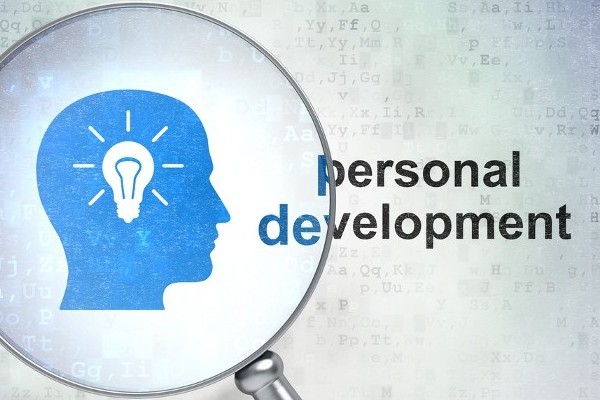- Friday 13 July 2018
7 min read
“The Bureau of Labor Statistics reported that turnover in the hospitality industry topped 70 percent, while the average turnover rate for all private sector jobs was only 46 percent.”*
In the hospitality industry, more than in any other, where turnover rates are high and where management needs a streamlined and financially responsible strategy to provide HR managers with the budget they need, a solid, fair and innovative HR strategy is essential.
Human Resources Management is evolving. In a recent article, Stacey Ferreira, CEO of Forge, says “Work-life balance and flexible work options have stepped in to improve job satisfaction and the overall happiness and health of employees.”**. Nowadays, employees are not interested in earning big salaries alone anymore. They want a good work-life balance and work conditions.
That’s why, as an HR manager, it is crucial to meet these new employees’ needs and provide them with a great work experience as well as convincing a sceptical board whom only concern is the business benefits to be as high as possible.
The first step for you to take, as an HR manager, is to have a “bullet-proof” case. You need to be able to quantify your strategy and you need to prove that investing in it will increase the property RevPAr, occupancy rates, sales etc…
To build this case, considering these 4 questions will help:

-
Where are we now?
It can sound too logical but most of HR managers don’t take the time to find out where the business currently is at when they decide to build their HR strategy. You need to be very clear and precise regarding the following concerns:
- Your current employee engagement level. What is in place now to find it out? How high is your absenteeism rate? Are guests happy enough with the service provided?
- Your current turnover rate.
- Your current training activity and budget. How many days are spent in training per employee? How much does it cost to the property? Do you have SOPs in place to follow?
- Your current labour cost. How much do you currently spend on wages, uniforms, equipment etc…?
- Your employees’ productivity. This is probably the hardest one to determine as there is no real means of knowing in our industry whether John is more productive than Michael or how to find out that John has provided a better service to customers than Michael? Or how to find out that Michael has had a better attitude than John? You will need to devote more time to find this out. Heads of department can help as they are on the ground and can have a better insight.
-
Where do we want to be?
Remember: you need a bullet-proof case. To build one, you need to dream big.
It is not only a question of reducing employee turnover or increasing sales, it is about creating the right culture within your company, a culture that brings the best out of employees and set yourself apart to your competitors:
- What do you want your employees to tell their friends/ family about the place they work in?
- What employee value proposition do you want to circulate when recruiting new hires?
- What reputation do you want to have in the hospitality industry and network?
To create this culture and increase employee engagement levels and productivity, your managers have their part to play. You won’t be the one on the ground who will make the staff feel valued, respected and heard. You need to hand over what you want to achieve to your managers. Communication is important in any part of the business but here, it is the key for a solid and sustainable culture:
- Meet with the senior management to introduce your strategy and what positive impacts it will have from an economic perspective.
- Schedule a meeting with all HODs and present your project and how they will help you to implement this strategy.
- Communicate what you want to achieve to your employees, so they are aware that you are improving processes for them. This will boost their engagement already and make them more comfortable in sharing their experience with you.
Once you have the bigger picture and have communicated it to all stakeholders then you need to introduce concrete measures to build employee engagement and stick to them. You need to ensure it keeps improving all the time.
As for the “Where are we now” question, you need to consider the different concerns of your business and set specific targets for each of them. Defining goals among these will help you follow the right path and even if these goals can be reviewed during the process, it is very important to have guidelines to avoid losing track of your progress.
There is a gap here, between these 2 steps where the first question is like your starting line and the second can be considered as your finishing line. As an HR manager, you need to bridge that gap and build the perfect race strategy.
-
How do we get there?
Spending enough time on planning your strategy is essential. The “How” part will determine how much money you will need and the means to achieve your targets. For each target you need to:
- Define what needs to be implemented and how long it will take to be so.
- Set an ideal budget that would cover any expenses.
- Quantify how the target will have a positive impact on the business.
It could be worth asking around what processes have been in place before and what worked or did not work. It will help you to avoid wrong directions.
You need to contrast on how much it would cost the business in not implementing this strategy not on how much it would cost the business to actually implement it. You need to link the effect of your strategy to concrete business outcomes and show the return on investment.
-
How do we know we are getting there?
Once you have determined where you are at, what your targets are and how you will reach them, you need to have a plan on how to review your strategy and its outcomes.
This step will be crucial for you and for the people you need to answer to.
At this stage you will need tools to determined whether your strategy has been effective or not and there are multiple ways to measure this:
- Gathering direct feedback from your staff through online surveys
- Reviewing absenteeism and turnover rates to see if they have decreased
- Assessing employees’ skills to ensure that every employee gets a regular and efficient training through scheduling on-the-job training sessions for your employees.
- Implementing customer surveys or mystery shopper surveys to find out in what area employees are performing well or on the contrary if they are lacking training.
- Assessing through checklists that all tasks to reach your targets have been completed and that all processes are in place etc…
On top of that, you might want to look at what your peers are doing before setting your targets. Comparing your costs and rates against theirs will give you the bigger picture and maybe change your view on too low or too high targets that you would have set. Looking only at your own figures won’t necessarily guide you in the right direction.
As a conclusion, time spent in building an efficient HR strategy will never be wasted. It is also important to keep in mind that this is an ongoing process that should be reviewed and improved on a regular basis. HR is not a formal role anymore, as the industry is evolving so is this part of the business and your HR strategies should continue to evolve as your property and industry do.
* https://vailcentre.org/high-turnover-in-the-hospitality-industry/
**https://www.inc.com/stacey-ferreira/the-happiness-value-of-work-life-balance.html
***http://blog.typsy.com/hospitality-training-statistics-you-need-to-know
Photo by JESHOOTS.COM on Unsplash
© Dobiquity









